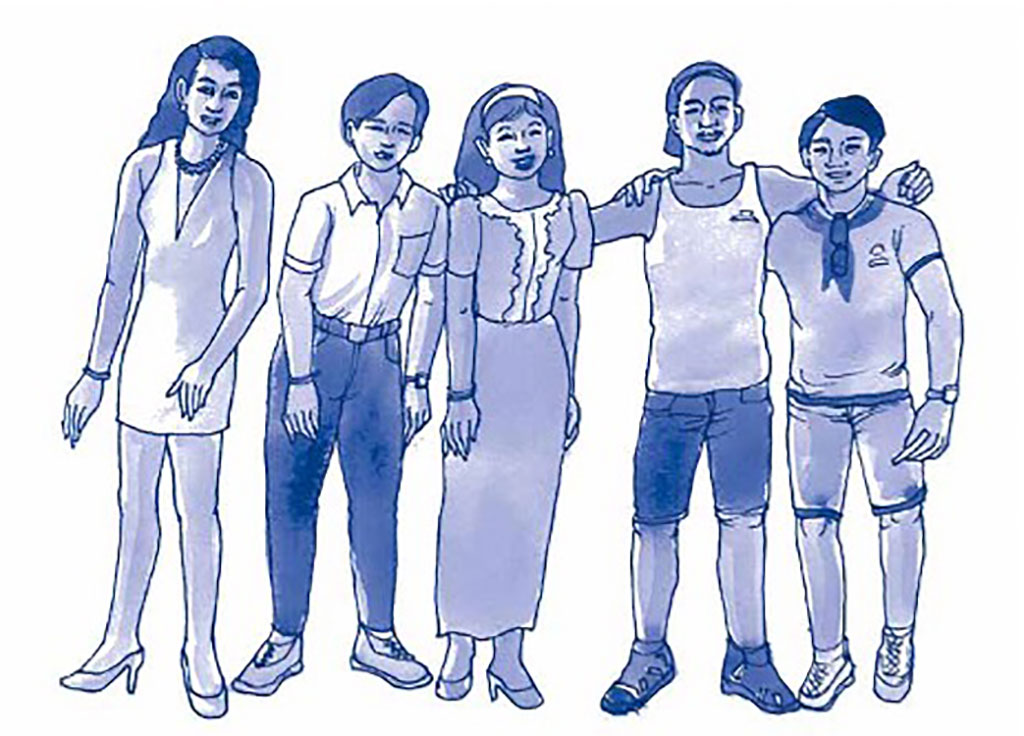PREVIEW
What special rights might SOGIE minority groups need?
There are no UN declarations or treaties that relate to SOGIE minority groups. However, both the UNGA and the UNHRC have adopted resolutions relevant for SOGIE minority groups and their rights. These can be found on the website of the OHCHR. One resolution establishes an Independent Expert on protection against violence and discrimination based on sexual orientation and gender identity.
There are also two sets of principles that relate to SOGIE minority groups. These sets of principles and some of their important principles are listed below.
The Yogyakarta Principles (2006)
The Yogyakarta Principles were developed by international human rights experts in Yogyakarta, Indonesia in 2006. As principles, they are not legally binding in Myanmar. Some of the principles relevant for SOGIE minority groups include:
Principles 2, 4 and 6: Freedoms from punishment for engaging in consensual sexual activity with people of the same sex who are over the age of consent and the right to protection from unwanted disclosure or threat of disclosure of information about one’s sexual orientation or gender identity
Principle 3: Right to self-identify one’s gender in official identification documents and a right to have one’s gender legally recognised without being forced to undergo medical treatment first
Principles 5, 10 and 18: Right to protection against violence, bodily harm and harassment, and freedom from torture, cruel, inhuman and degrading treatment or punishment, and protection from medical abuses
Principle 7: Freedom from arbitrary arrest and detention
Principles 8 and 9: Rights to a fair trial and humane treatment if in detention or prison
Principle 11: Protection from exploitation, sale and human trafficking
Principle 15: Right to housing, including social programmes aimed at addressing the risk of homelessness
Principle 17: Right to healthcare, including sexual and reproductive health
Principle 19: Freedom of expression, including of speech, dress and choice of name
Principle 23: Right to seek and enjoy asylum and protection from being sent to a place where one might be tortured because of one’s sexual orientation or gender identity
Principle 24: Right to freely enter into marriage or a registered partnership and have children
Principle 25: Right to participation in public life, including service in the military and police
The Yogyakarta Principles Plus 10 (2017)
In 2017, the Yogyakarta Principles were updated with an additional nine principles and 111 state obligations to the original 29 principles. As principles, they are not legally binding in Myanmar. Some of the principles relevant for SOGIE minority groups include:
Principle 30: Right to protection by the government from violence, harm, and discrimination by state and non-state actors
Principle 31: Right to receive and self-identify on official documents and identity documents and to change personal information about one’s gender identity
Principle 32: Freedom from forced medical procedures that modify sex characteristics and the right to counselling for victims of such procedures
Principle 33: Freedom from criminalisation on the basis of sexual orientation, gender identity and gender expression
Principle 34: Right to participate in the design of government measures seeking to address poverty and social exclusion related to sexual orientation, gender identity and gender expression
Principle 35: Right to access public bathrooms with dignity and without discrimination
Principle 36: Right to access and use information and communication technologies with safety and privacy
Principle 37: Right to know about violations against individuals from the SOGIE community and the SOGIE community itself and the right to remedy and support for victims
Principle 38: Right to display cultural diversity and support cultural diversity through funding and other resources
FOCUS ON MYANMAR:
Making SOGIE Minority Groups Public
2017 marked the first year the International Day Against Homophobia (IDAHO) was celebrated publicly in Myanmar. This commemoration is now commonly known as IDAHOBIT, the International Day Against Homophobia, Biphobia, Intersexphobia and Transphobia.
“We need to make the public aware of LGBT people here,” said Aung Myo Min, the Executive Director of Equality Myanmar. “While many people accept the notion of human rights, they do not want to accept LGBT rights. They say, ‘it is too early for Myanmar to accept LGBT rights.’ But we are human and we are not different.”
In 2019, the Yangon-based organisation &PROUD celebrated its fifth annual two-day SOGIE festival, which was attended by over 4,000 people. For the second year in a row, the festival was allowed by Yangon authorities to run in a public park. “We started this because there are very few open LGBT people in Yangon and we wanted to do something about LGBT culture which would bring the community together,” Jan Willem van Rooij, a spokesperson for &PROUD, said. “That’s the aim. Our festival is open to everyone in Myanmar society to learn about the current condition of the LGBT community here.”
“Myanmar has seen a lot of changes during these years,” said Hnin Phyu Phyu Soe, a filmmaker whose work A Simple Love Story played at the &PROUD festival in 2018. “One of the biggest changes for us is having the festival take place in a public space”.
For IDAHOBIT on May 17, 2019, the Myanmar Centre for Responsible Business (MCRB) and the Myanmar organisation Colors Rainbow jointly urged companies in the country to support the SOGIE community and stand up for SOGIE minority rights by displaying a rainbow flag. Over 15 businesses did so.
REFLECTION/DISCUSSION
How could the rights of the LGBT community in Myanmar be strengthened through public events such as those organised by &PROUD?
အမျိုးသားရေးဝါဒီ
လှုပ်ရှားသွားလာနိုင်မှု
အမွေအနှစ်
ကိုလိုနီဝါဒ
